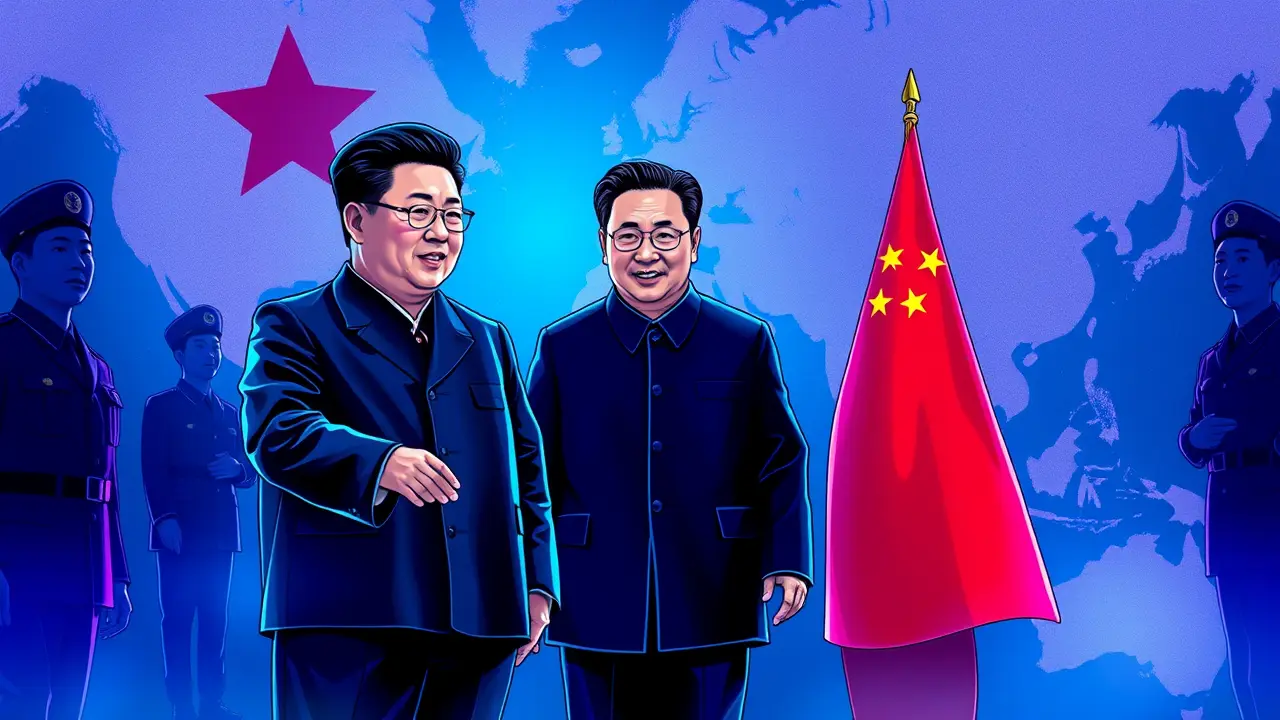Chinese Premier Visits North Korea to Strengthen Cooperation.
The arrival of Chinese Premier Li Qiang in North Korea this Thursday marks a significant recalibration in one of Asia's most consequential and historically complex alliances, representing the highest-level visit from Beijing since 2019 and signaling a deliberate thaw after a period of observable diplomatic distance. This three-day mission, strategically timed to coincide with the 80th anniversary celebrations of North Korea’s ruling Workers' Party, is far more than a ceremonial gesture; it is a profound geopolitical statement.Premier Li’s pledge to ‘strengthen strategic communication’ with Pyongyang must be analyzed not in isolation, but within the broader, tense theater of great-power competition, where a reinvigorated Sino-North Korean partnership directly challenges the United States' strategic primacy in the Indo-Pacific. The historical precedent is impossible to ignore—the 1961 Sino-North Korean Mutual Aid and Cooperation Friendship Treaty, often described as a ‘blood alliance’ forged in the crucible of the Korean War, has experienced cycles of warmth and frost, from the ideological schisms of the Cold War to China’s subsequent enforcement of UN sanctions in response to Pyongyang’s nuclear provocations.Yet, the current geopolitical climate, characterized by Washington’s deepening security pacts with Seoul and Tokyo and its technological containment strategies against Beijing, creates a powerful incentive for both capitals to paper over past disagreements. For Chairman Kim Jong-un, facing unprecedented international isolation and a crippled economy, China’s economic lifeline and diplomatic cover are indispensable for regime survival and for advancing his weapons programs.For President Xi Jinping, a more pliable and predictable North Korea serves as a crucial strategic buffer and a potent bargaining chip in his protracted contest with the West, echoing the Cold War dynamics where client states became proxies in a larger ideological conflict. Analysts are now closely watching whether this diplomatic flurry will lead to tangible outcomes, such as a relaxation of border trade restrictions, new infrastructure investments, or, most critically, a coordinated stance that could derail future denuclearization talks.The potential consequences are vast: a fortified Beijing-Pyongyang axis could embolden North Korean military posturing, complicate intelligence-sharing within the trilateral US-Japan-South Korea framework, and ultimately reshape the regional balance of power. As Churchill might have observed, nations have no permanent allies, only permanent interests; in this high-stakes diplomatic minuet, both Beijing and Pyongyang are moving with a cold, calculated clarity of purpose that the world would be wise not to underestimate.
It’s quiet here...Start the conversation by leaving the first comment.
© 2025 Outpoll Service LTD. All rights reserved.
